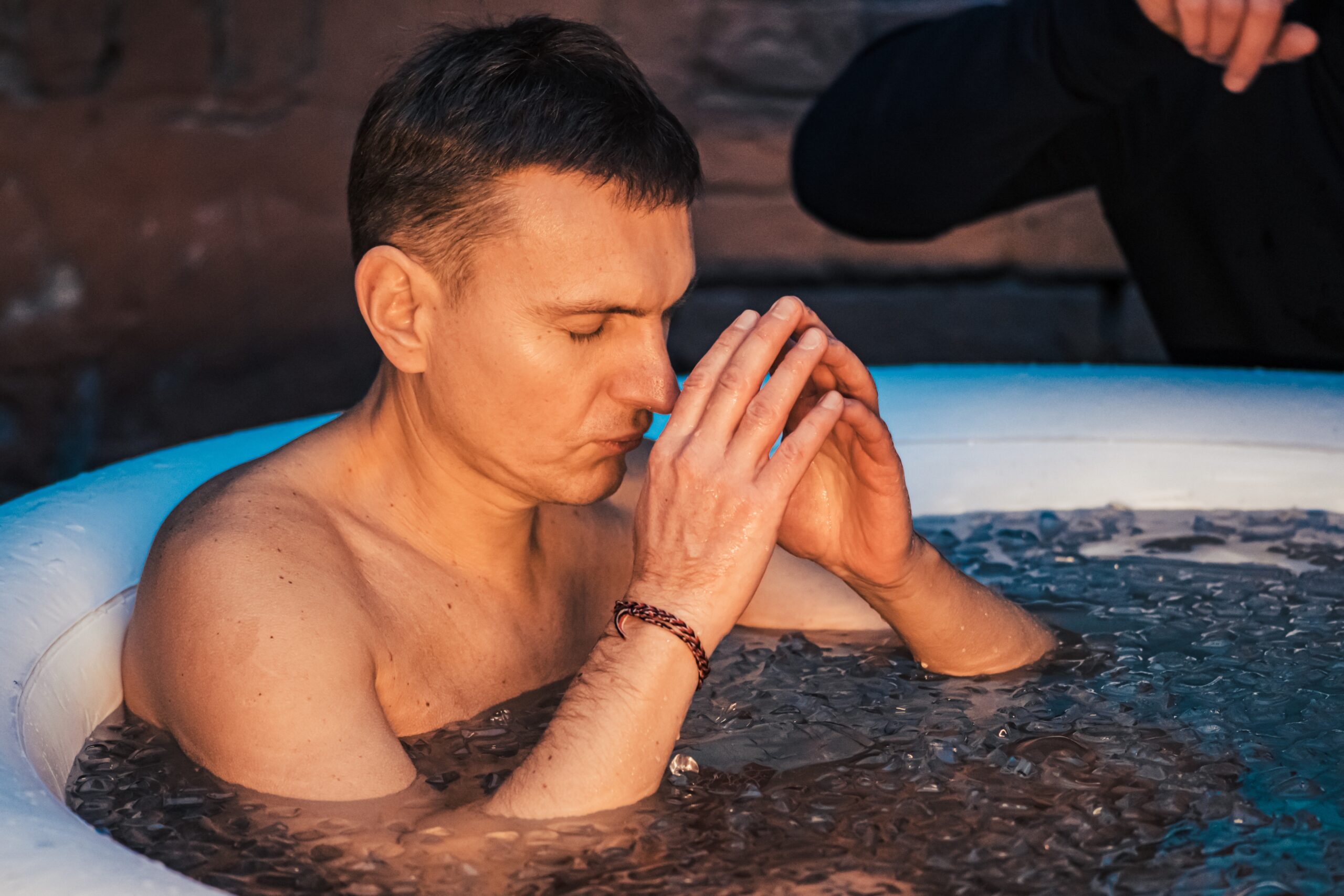Table of Contents

Cold water immersion, once a ritual for only the most daring, is proving to be a powerful tool for cellular health that may extend lifespan and enhance quality of life for those willing to brave the chill.
At a Glance
- Just seven days of consistent cold water immersion can significantly improve cellular resilience and stress management
- Cold exposure triggers autophagy—a crucial cellular cleaning process that removes damaged components and may slow aging
- Research shows cold therapy may reduce chronic inflammation, enhance metabolic health, and protect against cardiovascular disease
- Cold water immersion releases stress hormones and endorphins that improve mood and cognitive function
- Emerging evidence suggests cold exposure may help protect against neurodegenerative diseases
How Cold Transforms Your Cells
The science behind cold water's effects on cellular health is advancing rapidly. Recent research indicates that deliberate cold exposure acts as a mild stressor that essentially trains your cells to become more resilient. This process, known as hormesis, occurs when a small amount of stress triggers protective responses that strengthen the body's ability to handle future challenges. During cold immersion, cells activate survival mechanisms that not only help them endure the immediate cold stress but also enhance their overall function.
Autophagy—the cellular process that removes damaged components and recycles them—becomes more efficient with regular cold exposure. This internal "cleaning service" is essential for maintaining cellular health and has been linked to increased longevity in multiple studies. When autophagy functions optimally, cells can better resist stress, function more effectively, and potentially delay aging processes at the molecular level. Scientists have observed that just seven days of cold acclimation can produce measurable improvements in these cellular protective mechanisms.
Metabolic Benefits and Disease Prevention
Cold water immersion creates dramatic effects on metabolism that extend far beyond the momentary discomfort. When the body is exposed to cold, it activates brown adipose tissue (BAT), a specialized fat that generates heat by burning calories. This activation helps improve insulin sensitivity and may reduce the risk of metabolic disorders like type 2 diabetes. Regular cold exposure has been shown to decrease white adipose tissue—the unhealthy fat associated with obesity and inflammation—while increasing the more metabolically active brown fat.
Cardiovascular benefits are another compelling reason to consider cold water therapy. Research indicates that regular cold exposure may improve heart health by reducing inflammation, lowering blood pressure, and enhancing circulation. The initial cold shock causes peripheral blood vessels to constrict, redirecting blood to vital organs. As the body adapts, blood flow becomes more efficient overall. Studies of winter swimmers have found they typically display healthier cholesterol profiles and reduced markers of inflammation compared to control groups.
Mental Health and Cognitive Function
The benefits of cold water immersion extend well beyond physical health into the realm of mental wellbeing. When you immerse yourself in cold water, your body experiences a controlled stress response that triggers the release of catecholamines (including adrenaline and noradrenaline) and endorphins. These neurochemicals create not only the initial alertness but also a sustained mood elevation that many cold plunge enthusiasts describe as euphoric. Regular practitioners often report reduced anxiety, improved mood, and enhanced mental clarity.
Emerging research suggests cold exposure may also offer neuroprotective benefits. The stress of cold immersion stimulates the production of cold-shock proteins that may help protect brain cells from damage. Some scientists theorize that these protective mechanisms could potentially slow or reduce the risk of neurodegenerative conditions like Alzheimer's disease. Additionally, the controlled stress of cold exposure appears to enhance mental resilience—the ability to cope effectively with life's challenges—by teaching the nervous system to regulate itself more efficiently under pressure.
Practical Considerations for Cold Immersion
For those interested in trying cold water immersion, a graduated approach is essential for safety and sustainability. Begin with shorter exposures at milder temperatures—perhaps ending a warm shower with 30 seconds of cold water—and gradually increase duration and decrease temperature as your body adapts. Most health benefits appear to begin at water temperatures below 60°F (15.5°C), though many enthusiasts eventually work down to much colder temperatures. Consistency matters more than extreme cold; regular practice 2-3 times per week appears sufficient to gain significant cellular benefits.
Safety precautions should not be overlooked. Those with cardiovascular conditions, Raynaud's syndrome, or other medical concerns should consult healthcare providers before starting cold water therapy. Never practice cold immersion alone, especially when beginning, and always ensure you can exit the cold water quickly if needed. While research on cold exposure continues to evolve, the current evidence suggests that for many adults, the cellular benefits of controlled cold stress represent a promising path toward enhanced health and potentially extended longevity.
Sources:
https://www.sciencedaily.com/releases/2025/03/250328173516.htm
https://www.labmanager.com/cold-plunges-actually-change-your-cells-33814
https://pmc.ncbi.nlm.nih.gov/articles/PMC9518606/
https://medix-global.com/how-the-cold-comforts-of-ice-bathing-may-aid-longevity/
https://pmc.ncbi.nlm.nih.gov/articles/PMC11872954/
https://www.sciencedirect.com/science/article/pii/S0024320525000645
https://scitechdaily.com/how-cold-water-rewires-your-cells-to-fight-stress-and-aging/
